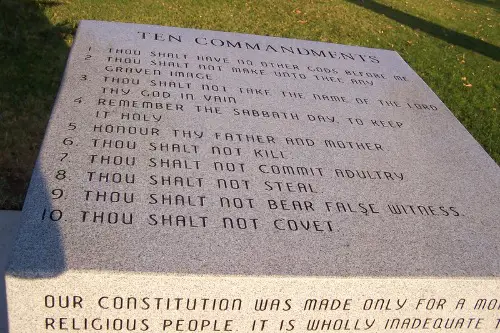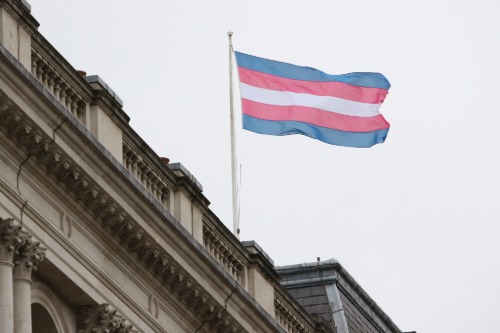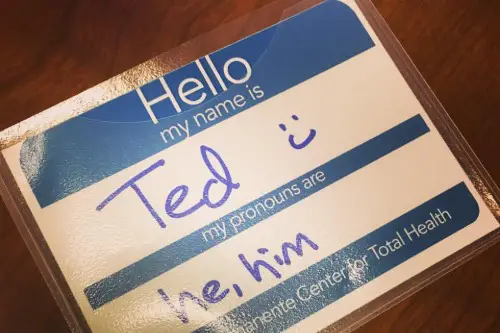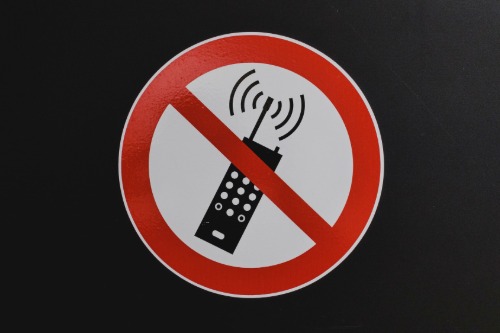1. Texas’s FURRIES Act

Texas Republicans introduced a bill called the “FURRIES Act” to ban students from barking, meowing, or even bringing fake tails and collars—or litter boxes—into school. It’s all based on a hoax that schools were accommodating furries with real litter boxes! Though it has zero co-sponsors and likely won’t pass, it’s being championed by Governor Abbott. This makes for an incredulous blend of moral panic and cosplay-policing.
Beyond the baffling spectacle, it sends a chilling signal: legislatures might ban fun in the name of order and orthodoxy. Educators warn it could outlaw school clubs for roleplaying games or cosplay events. It’s almost absurd, but it reflects broader culture-war anxieties at the state level. Meanwhile, D.C. is fighting over infrastructure—they’re over here banning fur suits.
2. North Carolina’s ICE Team-Up

In North Carolina, lawmakers quietly passed bills mandating Highway Patrol and SBI agents to train and cooperate with ICE under the 287(g) program, also blocking undocumented migrants from state benefits and shielding policies at UNC schools. These changes reflect a shift straight from federal immigration playbooks into state law, making everyday policing look more like border enforcement. It’s odd to think that state highways could turn into immigration checkpoints. Governor Josh Stein now faces pressure to sign or veto while Republicans hold a razor-thin majority.
This move doesn’t make headlines in D.C., but on the ground it’s already reshaping how law enforcement interacts with immigrant communities. Advocates worry it’s sowing fear among citizens and residents alike. Opponents argue it could fracture trust in police and lead to racial profiling. And yet, in Raleigh, it’s just another session day.
3. Louisiana’s Chemtrail Crackdown

Believe it or not, lawmakers in Louisiana introduced a bill to ban “deliberate chemical dispersion” from airplanes because of the chemtrail conspiracy theory. Yes, that chemtrail—the idea these white streaks aren’t innocent water vapor but sinister government spraying. Scientists are rolling their eyes, but legislators are doubling down, arguing people deserve protection “against unseen chemicals.” It’s a head-scratcher that lawmakers are writing laws around debunked pseudoscience.
It’s not just Louisiana either—Florida and Tennessee are seeing similar proposals, making this feel like a bizarre legislative trend. Critics say such bills legitimize misinformation and waste time. Proponents claim they’re defending public health… though the public health threat has no scientific basis. So yes, your state might outlaw invisible conspiracies next.
4. Utah and Idaho Flag Bans

Over a dozen states have quietly enacted or proposed laws banning non-approved flags—like Pride flags—on government property, with Utah now fining violators $500 per day. Idaho is next in line, awaiting the governor’s signature. These laws aim for “flag neutrality” but practically silence LGBTQ+ visibility. For locals, it’s a shockingly direct statement about whose voices matter.
This doesn’t grab national headlines—it’s not D.C. floor drama—but it’s altering the social fabric in these states. Advocates say it’s an authoritarian jab at expression; supporters call it unity. The legal battles ahead will test First Amendment protections. For residents, suddenly government buildings can’t show simple symbols of dignity.
5. Texas’s Ten Commandments Mandate

Texas Senate Bill 10 requires every public school classroom to prominently display a framed copy of the Ten Commandments—16″×20″ minimum. It’s basically a religious decree dressed up as legal code. Critics say it violates church-state separation; civil-liberties groups are already lining up to sue. It’s a classic case of culture-war legislation slipped into everyday schooling.
This is happening quietly while people focus on D.C. debates. But come September, students may be staring at religious text under state mandate. For religious minorities, that backdrop may feel exclusionary. Supporters see it as reclaiming moral foundation; others say it’s rewriting civics into religion.
6. Iowa’s Anti–Trans Civil Rights Rollback

Iowa’s Senate File 418 redefines “sex” strictly by biological birth characteristics and removes “gender identity” from civil rights protections effective July 1, 2025. That effectively erases legal shield for trans Iowans in housing, employment, education, and public accommodations. This is a major rollback for LGBTQ+ rights happening in stealth while D.C. fights over court nominations. The law also bans gender identity instruction in early grades—making classrooms battlegrounds for identity politics.
Local advocates warn the law fundamentally undermines dignity and personal safety. It won’t be easy to reverse once embedded in state code. But amid platitudes in national media about “protecting rights,” this is a real-world erosion of those rights. It’s happening in your regional school board, not in Congress.
7. Montana’s “Free to Speak Act”

Montana passed HB 400, the Free to Speak Act, protecting students and public employees from being compelled to use preferred pronouns that conflict with their religious or personal beliefs. Refusal is legally protected—even if it causes harm to transgender people. This law practically criminalizes affirming trans students for speaking honestly. It’s a radical weaponization of “free speech” cloaked as tolerance.
You won’t find this in cable news coverage, but it shapes interactions in public schools and agencies starting immediately. Imagine teachers or staff getting sued for refusing to say a student’s chosen name. That’s lived reality, even while legislators in D.C. argue over macro-level bills. It’s a micro-legal earthquake under your everyday public interactions.
8. Arkansas’s “No‑Cell” School Rule

Arkansas quietly passed the “Bell to Bell, no Cell Act,” banning student cellphones during school hours—except for emergencies or disabilities—starting in the 2025–26 school year. Thanks to funding from medical-marijuana taxes, schools also get free breakfasts. It’s a mixed bag of public health goodies wrapped around phone policing. Parents are divided: some praise the focus on learning, others worry about lost trust.
On the surface it’s school policy, but it’s enshrined in law now. That means districts across Arkansas no longer have the flexibility to set their own rules. It reflects a growing trend of legislatures taking over what used to be local school board decisions. Keep an eye out—you could see more states copy this.
9. Alabama’s Bible-in-Schools Law

Alabama passed a new law in 2025 requiring public schools to offer elective Bible literacy courses in grades 6 through 12, with the goal of studying the text “as literature and history.” It sounds tame—until you dig into how little oversight there is on curriculum or who teaches it. Critics warn it opens the door to proselytizing and blurred lines between education and religious endorsement. Supporters say it’s about “understanding Western civilization,” not preaching.
What’s weird here is how little debate this sparked outside Alabama. It’s quietly affecting school schedules and textbook orders already. Civil liberties groups are watching closely, but so far, lawsuits haven’t landed. It’s one of those subtle moves that could shift public education norms while no one’s paying attention.
10. Colorado’s Online-Safety Bill’s Veto

Colorado lawmakers passed SB 086 to force social-media companies to remove harmful content and cooperate with law enforcement in child-safety cases—but it was vetoed by the governor. The veto stemmed from privacy and innovation concerns, amplified last-minute by the ghost‑gun lobby’s cries. What seemed like an obvious public safety move unraveled in hours under coordinated pressure. It’s a dramatic example of how state bills can crash even when popular.
So yes, your state legislature passed it—then the governor nixed it. Yet the process exposed tech, gun rights, and privacy lobbies duking it out in public forums. While national headlines focus on federal court fights, this was local democracy in hyper‑zoom mode. It reveals the messy state-level battlegrounds shaping society today.
11. South Dakota’s App‑Store Age Checks

South Dakota introduced SB 180, requiring age verification and parental consent before minors download apps from any app store. The penalties range from misdemeanors to felonies depending on the violation. It’s one of the most far-reaching attempts to control online behavior at the point of access. If passed, it would fundamentally change how minors access digital content on smartphones.
This isn’t national yet, but it could ripple across states if enforced. South Dakota lawmakers are positioning themselves as parental-control pioneers—but with legal force. Critics worry about privacy and implementation—how do you verify age accurately? It’s a rare case where your phone’s download screen could soon include government paperwork.
12. California’s Cannabis Cafés

California quietly legalized “Amsterdam-style” cannabis cafés through Assembly Bill 1775, allowing licensed dispensaries to host live music and food in 2025. This is more than dispensaries—it’s legalization of public cannabis social spaces: cafes, event venues, entertainment hubs. With this shift, public normalization of cannabis is moving faster than most people realize. It’s now a creeping lifestyle policy, not just drug legislation.
If you live in California and haven’t heard of it—don’t worry, most haven’t. But starting next year, traditional “coffee shop” culture could include cannabis. Think Amsterdam with tacos and tunes, not just private lounges. It’s a cultural rewrite happening quietly at the state level.
13. Illinois’s Deer‑Meat Donation Law

Amid bigger policy battles, Illinois passed SB 3407, letting processors donate unclaimed deer meat to food banks—no government membership required, but record-keeping is encouraged. It’s a niche environmental hunger initiative, merging sportsmen with social welfare. Who knew venison could feed urban food deserts? It’s a surprising animal–charity twist being phased in quietly.
This is exactly the kind of odd but impactful bill you don’t hear about in national chatter. It reflects local collaboration between hunters, processors, and nonprofits. Simple in concept, but powerful in practice—expanding food access with wild game. It’s a quiet legislative win that’s already working behind the scenes.
14. Indiana’s Weather‑Control Law

In Indiana, a bill criminalizing intentional weather manipulation—like using chemicals or devices to affect sunlight or temperature—was filed in 2025. Serious felony threat for anyone attempting backyard sun-blocking or hurricane engineering. It’s almost comedic—until you realize it’s codified in law. This is textbook legislative overreach rooted in science fiction paranoia.
Still, the fact that a legislature passed a bill about controlling weather is remarkable. It shows how state lawmakers are authoring law around fringe fears. Sure, contrails or climate tech are far beyond most people’s weekend projects—but this leans heavily into the “just in case” zone. Welcome to the new frontier: outlawing thunder and sunshine in statute.
15. Nationwide AI Regulation Boom

Across states—Virginia, New York, New Jersey, Hawaii and others—nearly 400 AI-related bills are now under consideration, targeting everything from bot transparency to data‑center energy use and frontier‑model safety. This patchwork campaign is quietly rewriting the rules of tech, while policymakers in D.C. wrangle budgets. Some bills are mild, others radical—like mandating AI audit trails or governor’s oversight of generative models. It’s a stealth revolution in digital governance unfolding at the state level.
While some states try comprehensive consumer-protection laws, others restrict AI in schools, energy, or even courtroom use. It’s like 50 mini‑EU GDPRs springing up everywhere. For tech companies and digital users, this means compliance chaos unless states coordinate. Yet most people only hear federal noise—not this creeping mosaic of regulation.
This post 15 State Legislatures Quietly Making Life Weirder While Everyone’s Watching D.C. was first published on American Charm.


